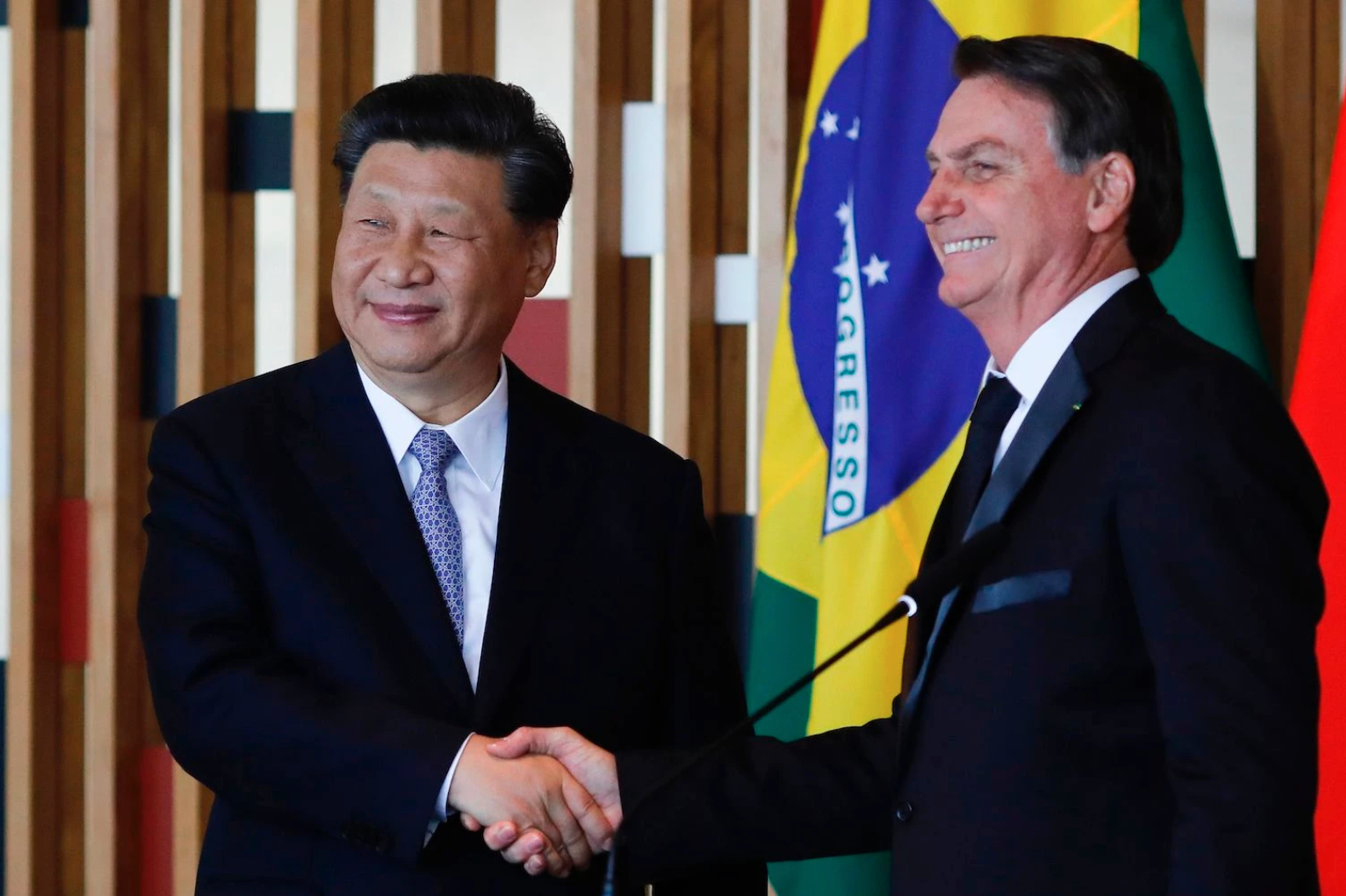http://www.editora.fgv.br/?sub=produto&id=393
Original title in Portuguese: O que a China quer?
The question “what China wants” – i.e., whether it will become a “responsible stakeholder”, seek to integrate into today’s system and respect international norms, or whether it will try to overthrow the current order and create an alternative model –is arguably the most important issue of the early 21st century.
Those in the realist camp understand the system according to the distribution of power and predict that China will not play by the West’s rules. They generally expect China to use its newfound status to pursue alternative visions of world order and challenge the status quo, for example by joining hands with other rising powers and mounting a counter-hegemonic coalition. China could create a parallel system with its own distinctive set of rules, institutions, and currencies of power, rejecting key tenets of liberal internationalism and particularly any notion of global civil society justifying political or military intervention.
Liberal institutionalists such as Ikenberry, on the other hand, argue that China faces a Western-centered system that is, as he stresses in this book, “open […] and rule-based, with wide and deep political foundations, a force that will enmesh and entrap even the most powerful.” The Western order, he says, is “hard to overturn and easy to join”, and expects that China will integrate into today’s structures.
This question matters as fundamental shifts of power have historically been prone to cause tension and even war, as Robert Gilpin and Paul Kennedy suggest. The rise of Germany and its growing demands in the late 19th century, which ultimately led to World War I, are a vivid example. Thus, many analysts today regard the rise of China as the ultimate test of whether international institutions are capable of containing the laws of realism.
Studying China has become highly popular over the past years, yet many analyses are superficial. In the United States, for example, the Chinese threat is often exaggerated for domestic political ends. In Brazil as well, the number of competent China watchers is low, which is particularly worrisome given the increasing dependence of Brazil on Chinese demand for raw materials. During President Rousseff’s trip to China, the debate seemed to oscillate between China-bashers and those with an overly romanticized vision of the Asian giant. There is an emerging consensus, however, that understanding China’s rise and its consequences is of great importance for any nation. It is in this context that O que a China quer is a most welcome contribution to the debate, bringing together the analyses of four of the most distinguished scholars on the subject.
In the first essay, Rosemary Foot debates the concept of the “responsible stakeholder” in the context of Chinese foreign policy since the end of World War II, noting that while China actively opposed the international system early on, this began to change in the 1970s and 1980s, when it slowly sought to integrate into international structures, seeking to be seen as a responsible actor. However, in the 1990s, the bar was raised, and merely supporting international institutions was no longer enough: now, respect for human rights, civil liberties and democracy increasingly began to define whether a country could be considered a responsible actor or not. Foot nicely shows how China, despite this change, continues to lay emphasis on being seen as a responsible actor, and how this desire clashes with the country’s more traditional and robust notion of sovereignty.
In the second essay, Shaun Breslin sheds light on how China’s rise affects regional politics in Southeast Asia. He rightly notes that our understanding of the situation is often dominated by a US-American perspective, which is mostly concerned about the American interests in Asia. Looking back, it becomes evident how China’s foreign policy outlook turned increasingly pragmatic: Rather than regarding its neighbors as invariably tied to the US and anti-China, Beijing realized that its neighbors needed to benefit from China’s rise as well in order to create a peaceful neighborhood conducive to Chinese interests – thus acknowledging that even China is deeply affected by what happens outside of its borders, and that no country can thrive globally without getting along with its neighbors. Similarly to Foot’s analysis, Breslin points to China’s desire to be seen as a responsible actor in the system, aware of the fact that its rapid rise causes others to worry. At the same time, China’s economic success and expectation of future growth also contributes to its soft power in the region, as do America’s economic difficulties, tied to the gradual decline of the Washington Consensus – although Breslin notes that the United States’ power of attraction in Southeast Asia remains a force to be reckoned with for years to come.
In the third essay, which has caused considerable debate since it was published in Foreign Affairs in 2008, G. John Ikenberry brilliantly makes the case for today’s institutions, arguing that no rising power could seriously oppose the system because the benefits of integration are simply too great to ignore. Rather than framing China’s rise as a competition with the United States (a contest the US would lose), the West must therefore make sure to maintain and increase the attractiveness of the international system, which, if managed carefully, will prove resilient in the face of China’s rise. Institutions need to be strengthened, the “returns to power” reduced, thus forcing China to adhere to the rules once it is at the helm. Describing the “triumph of liberal order”, Ikenberry thus argues that today’s system is unique in history, as it is not based on coercion, but on consent. As opposed to “imperial structures”, today’s order is “liberal”, defined by openness, legitimacy and durability. He also shows that the United States established the system in the first place in order to integrate as many nations as possible, and restrain its power to some degree in order to increase acceptance and thus the longevity of the system. The fact that the today’s order allowed actors such as China to rise “within the system” – e.g. by gaining more voting rights in the IMF and the World Bank- proves this point. These systemic factors, as well as the presence of nuclear arms and technology-powered globalization of the economy- make a showdown between China and the United States very unlikely. Yet at the same time, Ikenberry warns that in order to keep the system alive, its underwriter – the United States – must once again turn into its greatest supporter.
In the fourth and final article by Jeffrey W. Legro, the author shows how China adopted an isolationist strategy in the first half of the 19th century before seeking integration in the international institutions in the early 20 century. Under Mao, China then turned into a revisionist regime before slowly adopting an integrationist stance under Deng Xiaoping. Today, Legro points out, China disagrees with some details of the international system, yet he still categorizes China as a status quo power which fundamentally agrees with the basic tents that undergird the international system. There is a possibility, however, that this will change: The “Beijing Consensus”, which implies intervention in the economy and a strong focus on sovereignty, could turn into the symbol of resistance against international society. In addition, the question arises in how far a non-democratic country can adopt an integrationist strategy in the long term. Legro also argues that China’s leaders will only pursue an integrationist strategy as long as it produces results; but it could change course if economic growth stalls, or if the negative consequences of economic liberalization – such as rising inequality – outweigh the positive ones.
In sum, these four points of view offer an excellent overview of the state of the field –and are the ideal entry point for anyone who seeks to gain a better grasp of the rise of China, a phenomenon Ikenberry rightly calls “one of the great dramas of the twenty-first century.”
Read also:
New article: “Identity and the concept of the West: The case of Brazil and India”
Book review: “Liberal Leviathan” by G. John Ikenberry
Book review: “The Party: The Secret World of China’s Communist Rulers” by Richard McGregor
See all articles on China here.









